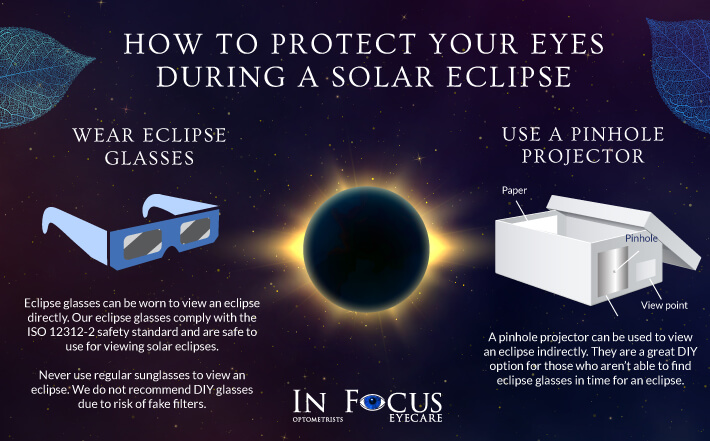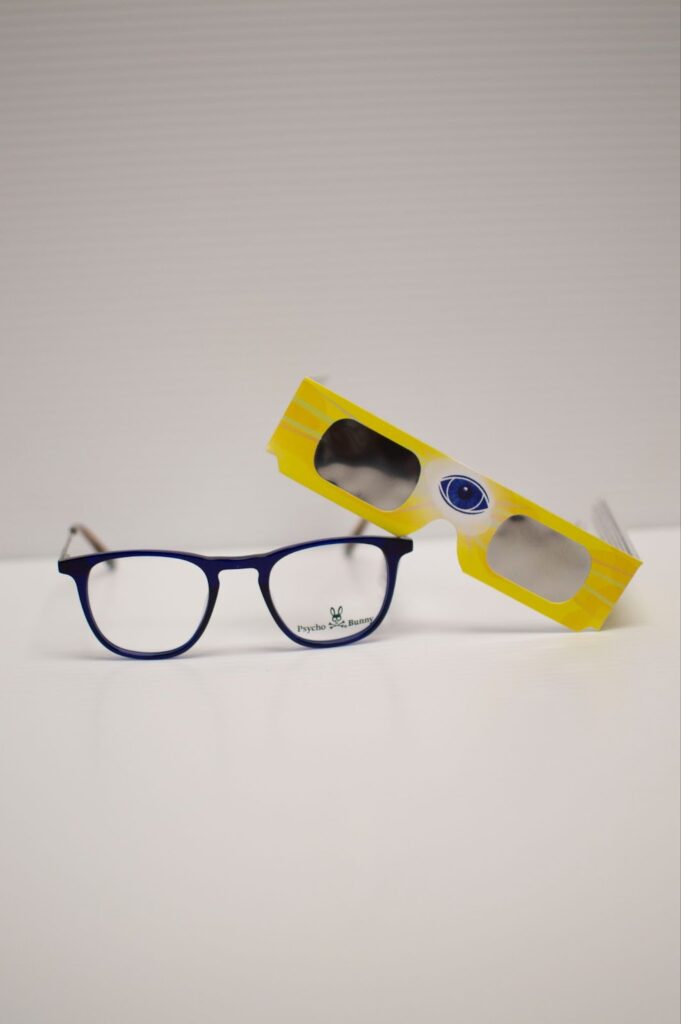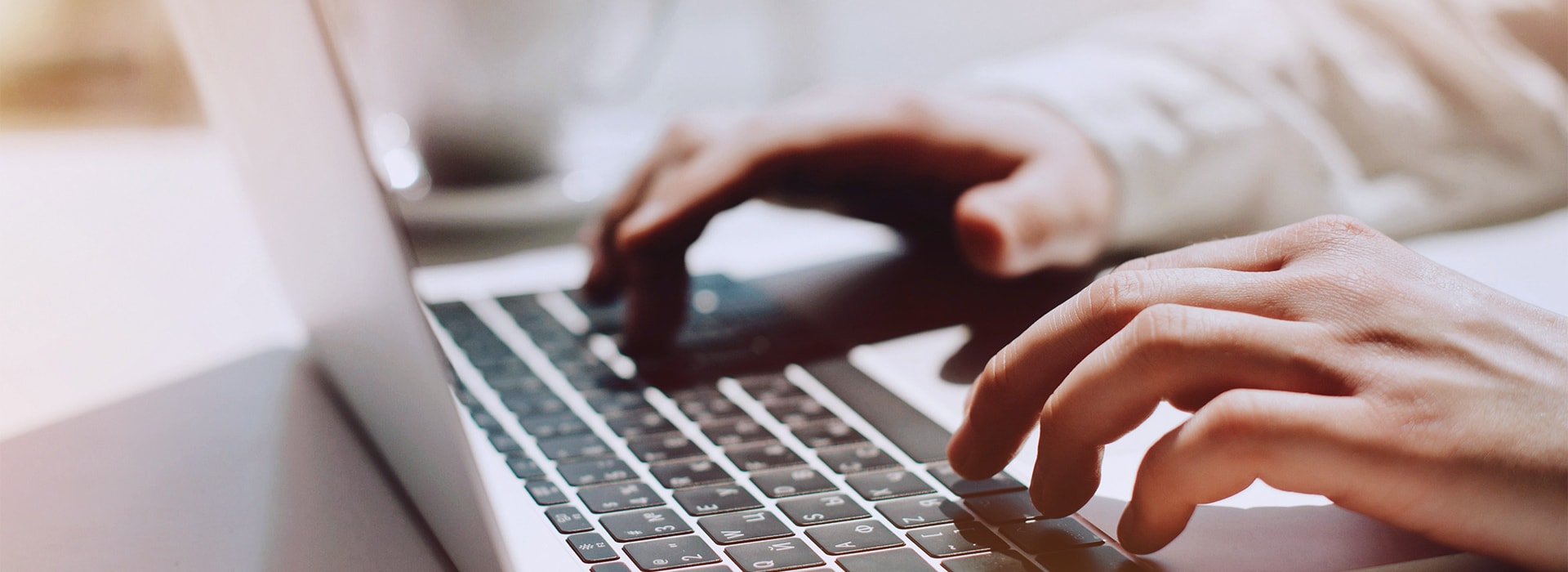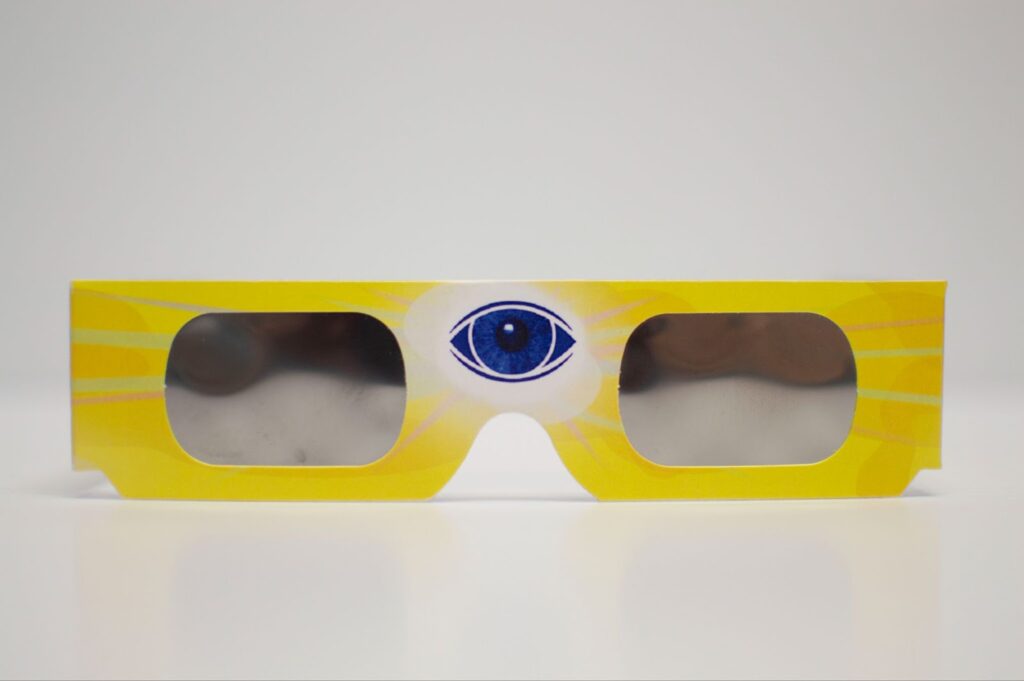Solar eclipses can be a once-in-a-lifetime experience for many people. They’re a true spectacle to behold, but it also means you need to make sure you know what you need to do for safe solar viewing.
Regular sunglasses don’t provide enough protection during an eclipse. The eyewear and devices made for looking directly at the sun are designed to protect your eyes from direct ultraviolet (UV) light exposure.
Direct UV exposure can cause immediate, irreversible eye damage and significantly increase your risk of experiencing future eye problems and diseases.
A pinhole camera is a simple and safe way to view the eclipse without risking your eyes. It projects an image of the sun onto a surface through a tiny hole, allowing you to watch the eclipse indirectly.
How to Make a DIY Pinhole Camera
Building a pinhole camera can be a fun and educational project to do as a family or individually before the eclipse. Here’s how to make one using materials you may already have at home.
You’ll need:
- A large, wide cardboard box (like a shoe box or cereal box)
- Tin foil
- A pin or needle
- White paper
To build the camera:
- Cut a square hole about 2.5 cm across on 1 side of the box, near the corner.
- Tape a piece of tin foil over this hole, leaving no gaps.
- Use a pin or needle to punch a small hole in the middle of the tin foil square.
- On the same side of the box, near the opposite corner, cut a small hole big enough to look through.
- Tape a piece of paper inside the box across from the tin foil square.
- Seal any extra gaps to prevent light from getting through.
To use your new pinhole camera:
- Turn your back to the sun.
- Hold the pinhole camera so the tin foil square faces the sun.
- Look through the other viewing hole.
- The sun should be projected onto the white paper you attached inside the box.
- When the eclipse begins, you will see the moon’s shadow slowly move across the sun’s projection.

Why Can’t You Just Wear Sunglasses for a Solar Eclipse?
Staring at the sun is never safe for your eyes. Even when the sun is partially blocked, UV radiation can still reach your eyes, leading to retina damage and an increased risk of serious eye conditions.
Regular sunglasses are not designed to protect your eyes from direct sun exposure—even the darkest tinted sunglasses with 100% UVA and UVB protection aren’t strong enough. While they protect your eyes from indirect sunlight, looking directly at the sun, even with sunglasses on, exposes your eyes to intense light and UV radiation, which can cause temporary or permanent damage to the retina and other structures in the eye.
Not all solar eclipses are total solar eclipses. Partial eclipses leave plenty of room for UV light to reach your eyes. Even during a total eclipse, the period when the sun is completely covered is relatively short—about 2–3 minutes. Total coverage only occurs in a limited geographic area called the “path of totality,” the areas that are firmly in the moon’s shadow.
How Does Sun Damage Affect Your Eyes?
UV damage is a serious daily concern, not just during eclipses or sunny summer days. Both gradual long-term exposure and intense short-term exposure can cause eye problems and increase your risk of:
- Solar retinopathy (sunburn on the back of the eye)
- Photokeratitis (sunburn on the eye’s surface)
- Pterygium (surfer’s eye)
- Eyelid skin cancer
- Age-related macular degeneration (AMD)
- Blindness
What About Solar Eclipse Glasses?
Solar eclipse glasses are specially designed to block out harmful UV and infrared light while allowing you to see the eclipse. Their special filter blocks out 99.999% of intense visible light and 100% of UV rays.
When purchasing solar eclipse glasses, ensure they comply with the ISO 12312-2 safety standard to ensure they’ve been properly tested and meet safety requirements for viewing an eclipse.
It’s also recommended not to make your own glasses and be aware of counterfeit glasses sold online. Fake glasses and fake solar filters may still sport the ISO logo, but they won’t protect your eyes from the sun’s radiation.
Protect your family’s vision with guaranteed-safe ISO-compliant eclipse glasses from In Focus Eyecare.

Get Eclipse-Safe Glasses from In Focus Eyecare
At In Focus Eyecare, our mission is to improve your quality of life through eye care, including offering guaranteed-safe eclipse glasses to help you and your family enjoy these rare events with full protection.
Book an appointment or visit one of our locations to learn more about getting prescription sunglasses and safe solar eclipse glasses.





